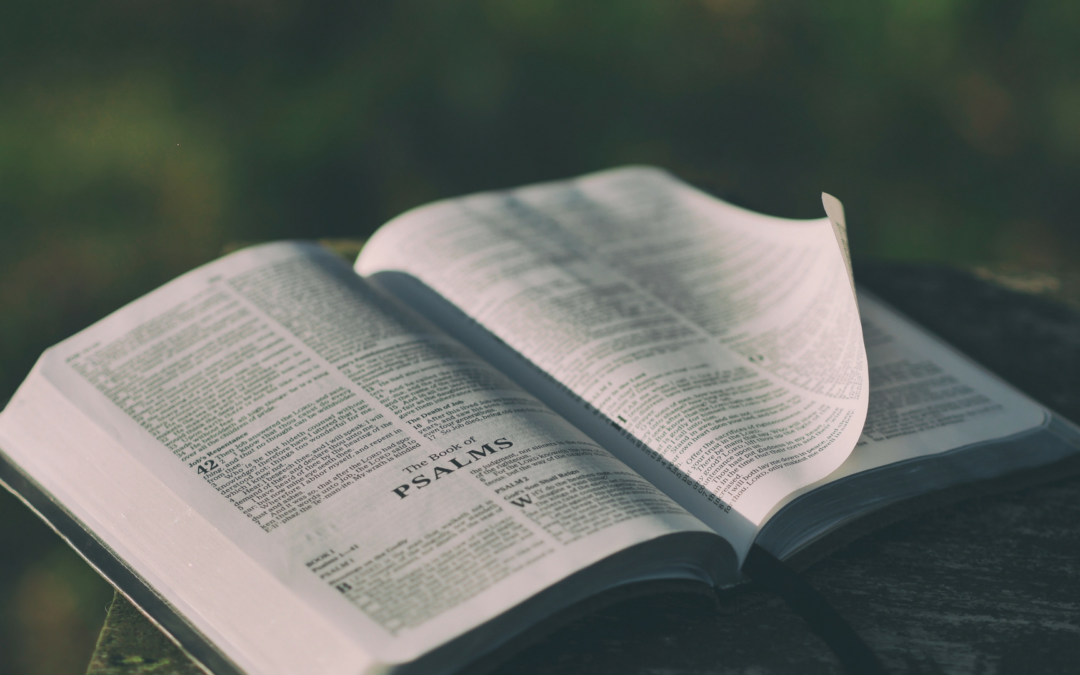The book of Psalms is an incredible and unique book. The book is a collection of 150 Psalms written by several authors over the span of many years, and each Psalm is poem, song, or hymn that is designed to be used in worship. Throughout history these Psalms have guided the people of God in both our corporate and our private worship, they have stirred our faith and affection for God, and they have been memorized and quoted as a source of encouragement and strength.
“The Lord is my Shepherd; I shall not want.” (Psalm 23:1)
“Even though I walk through the valley of the shadow of death, I will fear no evil.” (Psalm 23:4)
“The Lord is my light and my salvation; Whom shall I fear? The Lord is the stronghold of my life; of whom shall I be afraid?” (Psalm 27:1)
“Have mercy on me, O God, according to you steadfast love; according to your abundant mercy blot out my transgressions.” (Psalm 51:1)
“I waited patiently for the Lord; He inclined to me and heard my cry.” (Psalm 40:1)
These are but a few of the verses in the Psalms that have etched their way into my heart and mind, and there are many more that I could have added to this list. The Psalms are a beautiful source of God’s grace to us.
I encourage you to spend some time in the Psalms, and as you do, here are three things that the Psalms will do in our lives.
The Psalms can remedy monotony.
It is easy to get in a prayer rut. We can come to God in prayer in the same way, with the same wording, offering the same praises, and asking for the same requests. Although there is are many benefits to intentional repetition in our prayer life, if we aren’t careful, we can fall victim to monotony. The Psalms can be an excellent remedy to the monotony.
If you have never used the Psalms as a guide to your prayer, I recommend that you check out this blog.
There is such a beauty in praying the Scriptures, and the Psalms can be an incredible guide for our prayer lives. The Psalms reveal the infinitude of our God, and if our prayers have become monotonous, the Psalms can be an excellent remedy for monotony.
The Psalms invite us to come to our God as we are.
The Psalms are incredibly honest. Have you ever read something like this and though, “Can I say that to God?? Should I say that to God??”
Take Psalm 69:23-24 for an example:
Let their eyes be darkened, so that they cannot see, and make their loins tremble continually.
Pour out your indignation upon them, and let your burning anger overtake them.
Can David really say this?? David is praying that his enemies go blind, that their loins tremble continuously (that sounds terrible…), and that God would pour his burning anger all over them… Although I would not recommend that you pray this about your coworker with whom you have struggled to get along, David’s raw humanity and emotions are on display through this Psalm. He is honest before the Lord. He bears his soul before the Lord.
The Psalms run the full spectrum of human emotions. Joy, sadness, anger, jealousy, fear, rage, hope… There are so many human emotions that are on display in the Psalms. There is a beauty here that we should not miss. We don’t have to hide our humanity from our God. The Psalmists prayed and worshipped God in and through their humanity, and the Psalms demonstrate that your God can handle our raw and unhampered emotions.
We can come to Him in our brokenness. Our Sadness. Our Joy. Our Excitement. Our anxiety and stress. Our fear. Our sin. Our anger. The Psalms invite us to come to our God as we are.
The Psalms demonstrate God’s faithfulness.
The Psalms are full of personal testimonies of God’s goodness and faithfulness to his people. Our God has been faithful to His people through war and peace. Through famine and prosperity. In rest and in struggle. Through the full range of human emotions and experiences, God has been faithful. The pages of the Psalms are filled with the testimony of God’s people declaring the faithfulness of God.
He has been faithful to generations and generations who have come before us, and the Psalms demonstrate that our God is faithful to His promises today through every circumstance and situation that we are facing. Our God is faithful.
God was faithful then, He is faithful now, and He will be faithful tomorrow. We can join in the worship of the Psalmist as he said,
“Your faithfulness endures to all generations; you have established the earth, and it stands fast.” (Psalm 119:90)
